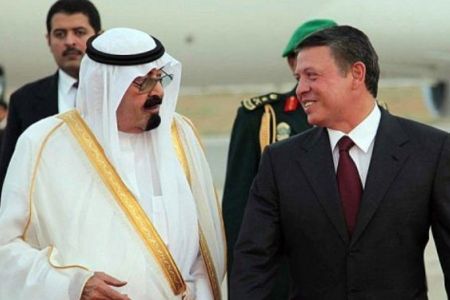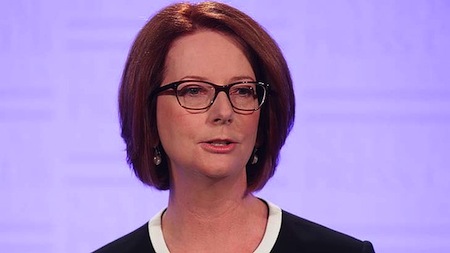The Jordan Times actually has a non-ironic headline for a story that reads: ‘Jordan biggest winner in elections — King.’![]()
I mistook it initially as reading that Jordan’s king was the biggest winner in the Jordanian elections, which would have probably been a more accurate headline, given that last week’s elections were certainly a ‘win’ in the nominal sense for Abdullah II, the Jordan monarch since 1999 (pictured above, right, with Saudi Arabian king Abdullah).
Those elections, held last Wednesday, January 23, were all but certain to elect to the Majlis al-Nuwaab (Chamber of Deputies), the lower house of Jordan’s Majlis al-Umma (National Assembly) a majority of legislators loyal to the monarchy — the 60 senators of the upper house, the Majlis al-Aayan (Assembly of Senators) are appointed by Jordan’s king.
Following the 2011 ‘Arab Spring’ protests in Jordan, Abdullah agreed to allow the Chamber of Deputies to select the next cabinet and prime minister. Those deputies, however, include 108 out of 150 who were elected as ‘independents,’ mostly loyal to the monarchy, with just 15 seats reserved exclusively for women and just 27 reserved to be contested by political parties.
In light of the fact that 72% of the seats in the Chamber of Deputies are essentially rigged in favor of the monarchy, it’s understandable that the political wing of Jordan’s Muslim Brotherhood, the Islamic Action Front (جبهة العمل الإسلامي), boycotted the elections, alongside several other smaller parties, including many representatives of Hirak, the secular protest movement founded two years ago to protest the Jordanian monarchy. The Muslim Brotherhood in Jordan has a longtime history of greater cooperation with the ruling state, and it itself is less conservative than other similar movements in the Middle East — it’s relatively progressive on women’s rights and is committed to democracy, for example.
Given the fact that the Brotherhood’s voters are typically more urban and more Palestinian, the elections will have resulted in disproportionately greater representation for the rural tribal population and the so-called East Bank Jordanians, who were never resident in the Palestinian-dominated West Bank of the Jordan River, annexed by Israel after the Six-Day War in 1967.
But the result is a bit more complicated than that.
International observers, such as the National Democratic Institute, have reported that the elections, by and large, were the freest elections yet experienced in Jordan, where 56% of eligible voters ignored the call to boycott and turned out to vote. Given the turmoil currently engulfing Egypt under Muslim Brotherhood-supported president Mohammed Morsi, it’s not surprising that many Jordanians would be wary about turning over power to the Brotherhood in their own country.
Despite the Brotherhood boycott, however, 18 even more moderate Islamist candidates won seats, and another 20 or so leftist, nationalist or other government critics also won seats, a contrast to the prior Chamber of Deputies.
But if the vote wasn’t entirely lacking in irregularities, it’s hard to argue that the elections were exactly fair, given that the largest opposition party will have no representation.
So it’s also not surprising that many Jordanians are now protesting (some reports describe rioting) in the aftermath of the elections:
Jordan is witnessing its third day of riots protesting against the outcomes of the parliamentary elections, which showed a victory for tribal forces. These riots have deepened the political crisis that the country has been going through since January 2011. Scenes of violence killed one and injured three in the eastern tribal city of Mafraq, and eclipsed governmental and Western reports, which confirmed the integrity of the voting process. This comes at a time when Jordanian King Abdullah II is considering his options regarding the formation of a new government.
At the same time, the Muslim Brotherhood cancelled its own planned protests, so it’s too soon to know if the post-election protests will reach the critical mass that would more imminently pressure the Hashemite monarchy to accelerate its reform efforts.
Caretaker prime minister Abdullah Ensour, who was appointed in October 2012 to oversee economic reforms, has stepped down, but will stay on pending the appointment of a new prime minister directly by the National Assembly. Jordanians most recently gathered for large-scale protests in November 2012 over cuts in fuel subsidies, one of several steps that Abdullah’s government has taken in light of a budget deficit that reached 6.5% of Jordanian GDP in 2012.
So what comes next? Continue reading What comes next for Jordan after loyalists win rigged, boycotted elections

